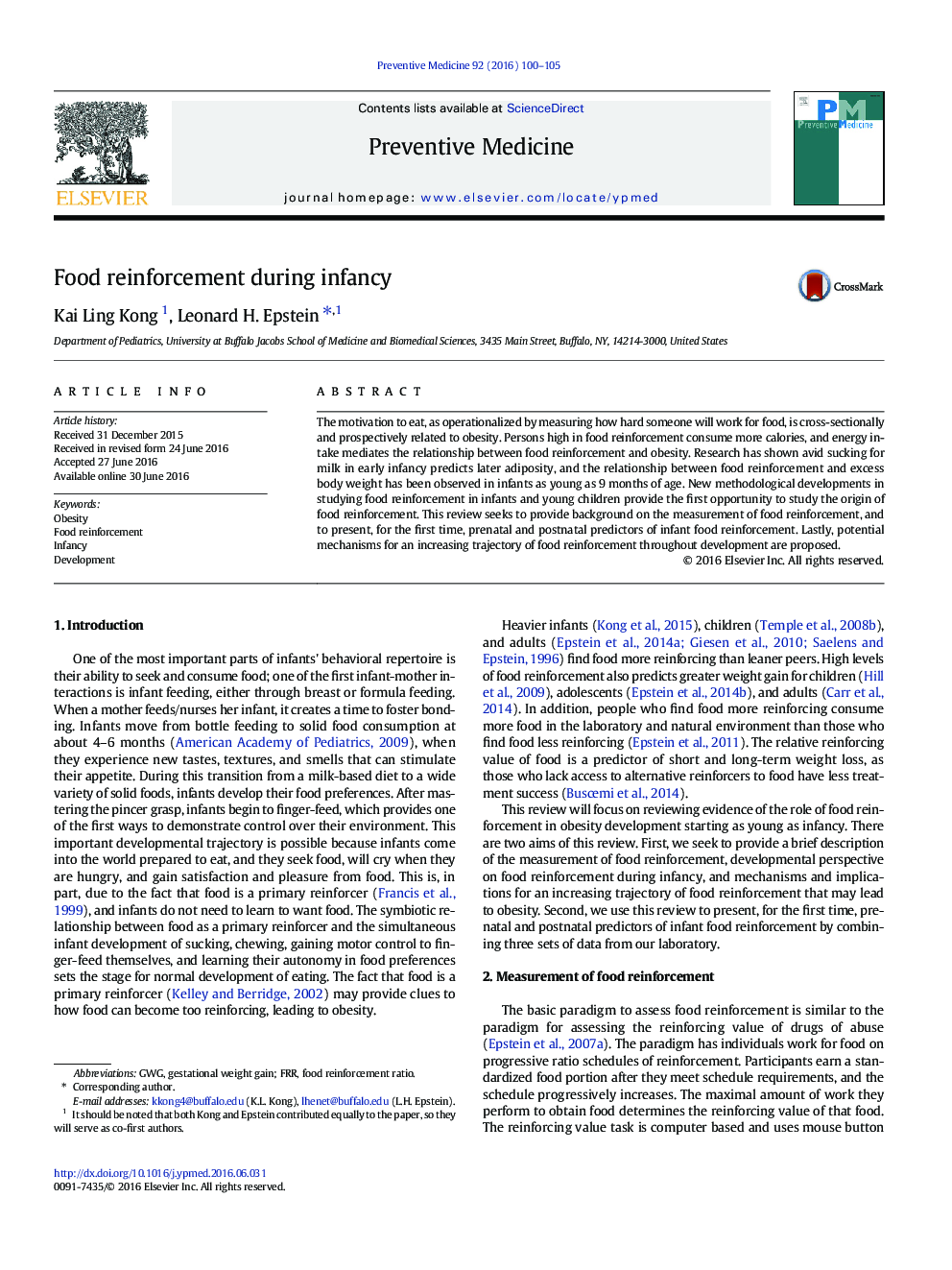| Article ID | Journal | Published Year | Pages | File Type |
|---|---|---|---|---|
| 5635743 | Preventive Medicine | 2016 | 6 Pages |
â¢Understand the origin of food reinforcementâ¢Role of food reinforcement in obesity development starting as young as infancyâ¢Prenatal and postnatal factors that associate with infant food reinforcement
The motivation to eat, as operationalized by measuring how hard someone will work for food, is cross-sectionally and prospectively related to obesity. Persons high in food reinforcement consume more calories, and energy intake mediates the relationship between food reinforcement and obesity. Research has shown avid sucking for milk in early infancy predicts later adiposity, and the relationship between food reinforcement and excess body weight has been observed in infants as young as 9Â months of age. New methodological developments in studying food reinforcement in infants and young children provide the first opportunity to study the origin of food reinforcement. This review seeks to provide background on the measurement of food reinforcement, and to present, for the first time, prenatal and postnatal predictors of infant food reinforcement. Lastly, potential mechanisms for an increasing trajectory of food reinforcement throughout development are proposed.
